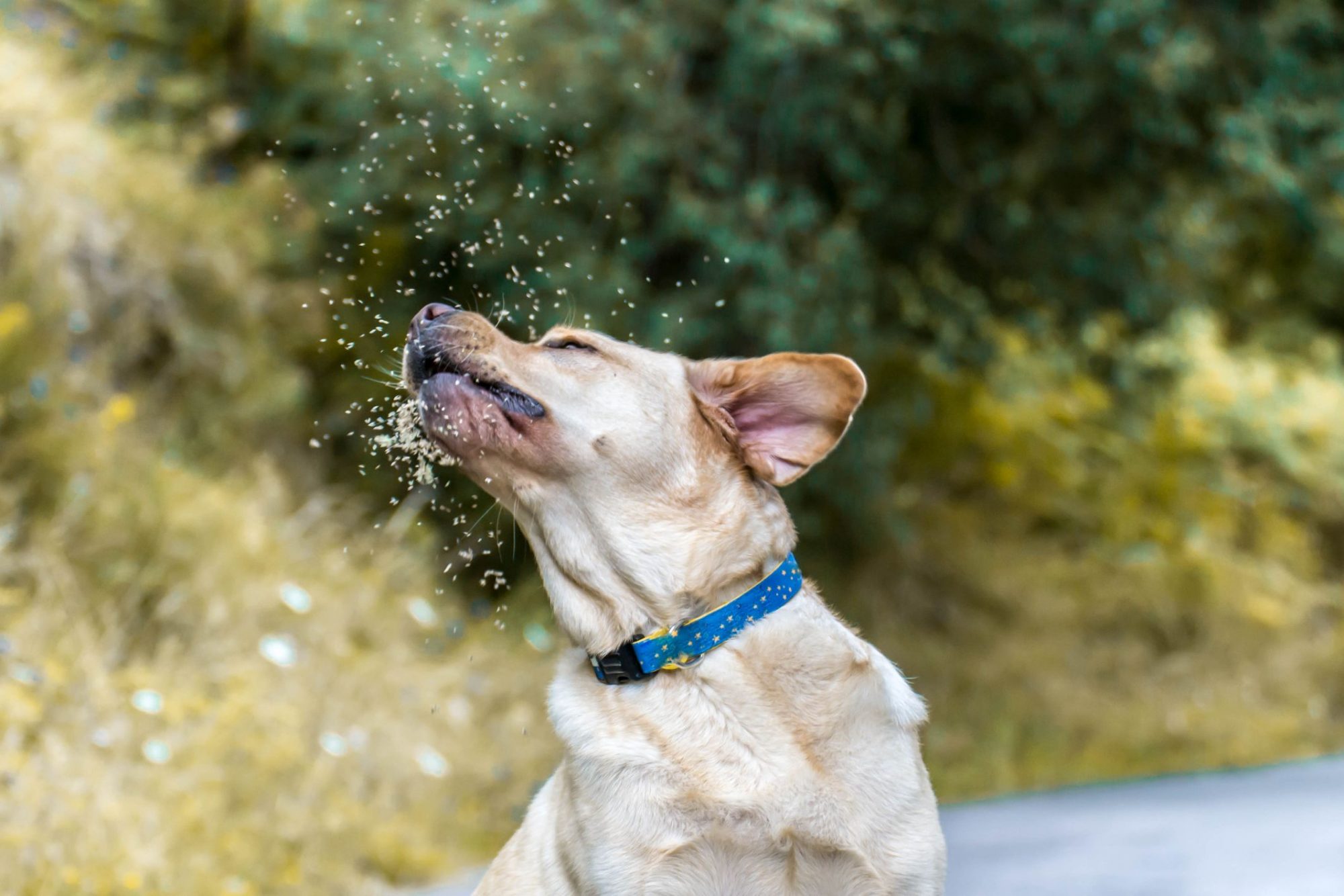Blog
Scratchy Season: Does My Dog Have Pollen Allergies?

Pollen allergies in pets is one of the more common types of allergies that affect our four-legged friends. Like humans, dogs suffer from an array of symptoms when the weather warms up and the trees, plants, and flowers are in their full glory. While seasonal allergies in pets can cause symptoms year-round, most dogs suffer especially during spring and summer.
Pollen allergies manifest differently in dogs. You may not witness the sneezing and watery eyes that are the telltale signs of seasonal allergies in humans. If you have wondered, “does my dog have pollen allergies,” you have come to the right place. The team at Ten West Bird and Animal Hospital is here to answer that question and give you tips to provide relief for your pet.
Pollen Allergies in Dogs
This time of year, pollen is at its peak. Pollen is a substance found in grasses, trees, flowers, and weeds. Pollen is necessary to fertilize other plants and propagate their species. In order to do this, most pollen is carried on the wind, which makes it extremely hard to avoid.
An allergy is a hypersensitivity or reaction to a substance in the environment, which can include anything from food to dust to pollen. This reaction to an allergen causes a release of histamine, which, in turn, causes the usual symptoms in allergic dogs. These symptoms include:
- Chronic scratching
- Biting at paws and legs
- Rubbing face against the floor and furniture
- Nose inflammation and discharge
- Skin disorders, such as rashes and hot spots
- Patches of missing fur
- Vomiting/diarrhea
- Asthma-like symptoms, such as wheezing, sneezing
- Lethargy
These symptoms can also mimic other medical concerns, so it is best to have a thorough veterinary examination to determine the cause of the symptoms. Certain breeds of dogs are more susceptible, such as Boxers, Pugs, Retrievers, Spaniels, and Bichon Frise, among others.
Diagnosis and Treatment
During the wellness examination, your veterinarian will ask you questions about when the symptoms are at their worst. We will then do a thorough physical exam and look for signs of skin or ear infections, hot spots, and other secondary reactions. Skin and blood based allergy testing is available for seasonal or pollen allergies.
Once we diagnose your dog with allergies, there are a few treatment options to minimize the allergic reactions. There is no cure for allergies, but we can help ease the discomfort of the season.
- Oral medications like antihistamines and Apoquel
- Injectable medications
- Steroids
- Fatty acids
- Frequent bathing with a oatmeal or other skin soothing shampoos, along with a conditioning spray
- Changes in diet and supplements
You can also avoid taking your dog out during peak pollen times, which are early mornings and evenings. Make use of air filters and vacuum more frequently. Launder your pet’s bed and bedding once a week.
Does My Dog Have Pollen Allergies?
Seasonal allergies in dogs cause multiple problems as their immune system is working in overdrive. If you suspect your dog has pollen allergies, please contact us. We can get to the correct diagnosis and start your dog on the right allergy treatment.
